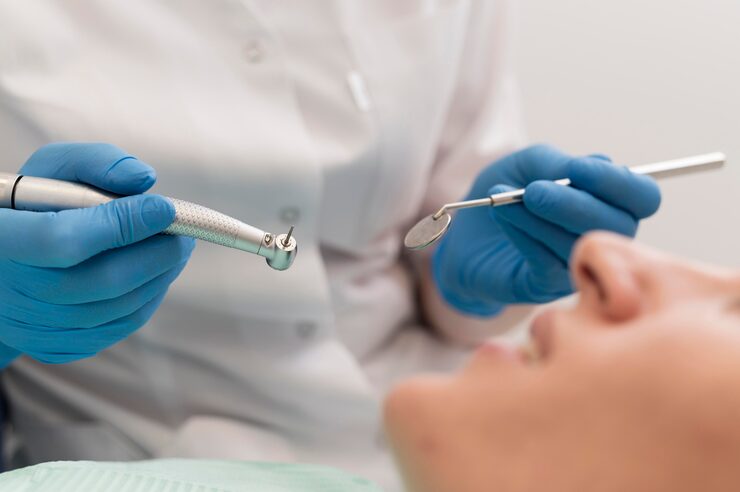A bright smile and healthy teeth say a lot about a person’s habits. They’re shaped not just by genes but by daily choices: what you eat and drink, how much you hydrate, and how you care for your mouth. The foods and beverages you choose and your oral care routine all affect your teeth and gums. A toothache or bad breath are clear signs of how these choices matter. This article explains how everyday habits influence oral health and offers practical tips for a healthier smile.
Prioritising Nutrition for Optimal Oral Health
A balanced diet supports overall health and plays a big role in keeping teeth and gums strong. Eating a variety of nutrient-rich foods helps protect your mouth. Whole grains, lean proteins, and healthy fats form the basis of a good diet. Dairy products like milk and cheese provide calcium and phosphorus, which help strengthen tooth enamel. High-fibre fruits and vegetables boost saliva production, acting as natural cleansers and lowering cavity risk. Limiting sugary foods and drinks is important because sugar feeds harmful bacteria that produce acid and erode enamel. Acidic foods and fizzy drinks can speed up this erosion. Choosing nutrient-dense foods builds a better defence against common dental problems, and many people also consult their dentist for personalised advice.

Avoiding Tobacco and Moderating Alcohol
Tobacco and alcohol can quietly harm oral health. Smoking stains teeth, causes bad breath, and increases the risk of gum disease and mouth cancer. Tobacco weakens the mouth’s defenses and raises inflammation. Alcohol dries the mouth, reducing saliva’s protective effect, and many alcoholic drinks are acidic or high in sugar, making teeth more prone to decay. Quitting smoking, drinking in moderation, and keeping a good oral care routine can reduce these risks and help preserve your smile.
Staying Hydrated
Water is essential for overall and oral health. Staying hydrated supports saliva, the mouth’s natural defense, which washes away food particles, neutralises acids, and helps repair teeth. Dehydration can cause dry mouth (xerostomia), which encourages bacterial growth and raises the chance of gum disease, cavities, and bad breath. Plain water is the best choice because it hydrates without added sugars or stains.
Practising Regular Oral Hygiene
Good oral health depends on a few simple habits:
– Brush with fluoride toothpaste at least twice a day to remove food and plaque, prevent decay, and keep gums healthy.
– Floss daily to clean between teeth where a brush can’t reach, reducing cavities and gum inflammation.
– Use mouthwash as a supplement to brushing and flossing to kill bacteria and freshen breath, not as a replacement.
– Visit your dentist regularly for check-ups and cleanings so problems can be found and treated early.
Following these basics can make the difference between occasional issues and a lifetime of healthy smiles.
Exercising and Managing Stress
Exercise and stress management affect oral health in ways that aren’t always obvious. Regular physical activity improves circulation, which supports healthier gums, and can boost saliva production. Stress, however, is linked to teeth grinding (bruxism), higher risk of gum disease, and canker sores. Managing stress through exercise, meditation, yoga, and good sleep reduces these risks and helps protect your mouth.
Tackling the Safety Issues of Oral Piercings
Oral piercings may look stylish but come with risks. The mouth is full of bacteria, and piercings can create an entry point for infection, causing pain, swelling, or more serious issues. Piercings can also chip or crack teeth and cause gum recession if they hit the teeth or rub on soft tissues. They may interfere with speech and chewing. To lower these risks, keep strict oral hygiene, watch for signs of infection, choose placements that avoid contact with teeth and gums, and have regular dental check-ups to monitor any damage.
Final Thoughts
Every choice you make affects your overall health, and your mouth often reflects your lifestyle. Caring for your oral health is a commitment to your well-being. Aim for a strong, healthy smile—not just for looks but for lasting health. If you’re unsure about what to do, ask a dental professional for guidance and let your smile show a life well cared for.